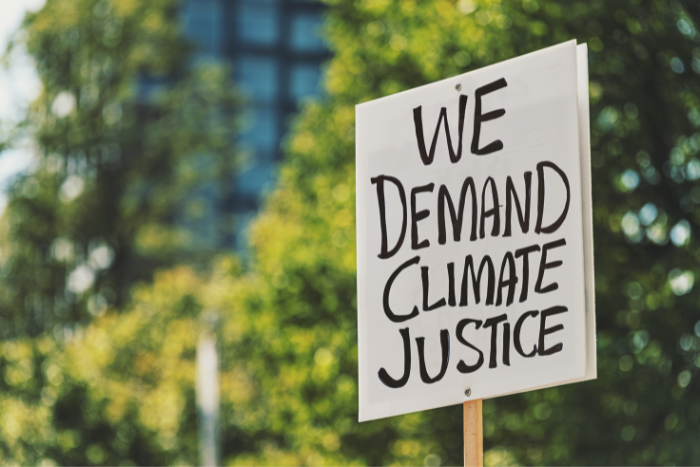The Supreme Court of India for the first time recognised the right to be free from the adverse impacts of climate change, saying it is intertwined with the right to life and equality that is embedded in the Indian Constitution. A three-judge bench headed by the Chief Justice of India DY Chandrachud gave the verdict in the great Indian bustard conservation case. The bench reversed a 2021 blanket ban against overhead powerlines over an area of 99,000 sqkm covering parts of Gujarat and Rajasthan to protect the birds, saying that only allowing underground power transmission cables in such a large area, will impact the country’s clean energy shift. By doing so, it will impede global efforts against climate change, thereby threatening fundamental rights of Indians, such as the right to life, equality, access to energy, among others. DTE said its a landmark verdict in the sense that it delineates the role of climate mitigation as independent from ecological conservation.
The verdict also paves the way for legal accountability of actions that undermine meeting climate targets.
Climate inaction violators human rights: European court
A group of more than 2,000 Swiss women mostly in their 70s have won the first ever climate case victory in the European Court of Human Rights. The women said their age and gender made them particularly vulnerable to the effects of heatwaves linked to climate change. The court called Switzerland’s emission reduction efforts woefully inadequate. It is the first time this court has ruled on global warming. Swedish campaigner Greta Thunberg joined activists celebrating at the court in Strasbourg on Tuesday. Experts said the verdict is binding and can trickle down to influence the law in 46 countries in Europe, including the UK.
UK double counting £500m of aid for war-torn countries as climate finance
The UK government is ‘double counting’ £500 million of aid for war-torn countries as climate finance spending in an attempt to meet its Paris Agreement pledge. Money for humanitarian work in Afghanistan, Yemen and Somalia is now being classified as climate finance, Carbon Brief reported.
The projects being double-counted include work to provide food and basic necessities, with no link to climate action, Carbon Brief’s analysis reveals. Some of their internal reports even state clearly that they are not climate-finance projects. This is part of a wider revision of climate-finance accounting, introduced by the government in 2023 to ensure the UK achieves its £11.6 billion target.
By redefining existing funds pegged for development banks, investment in foreign businesses and humanitarian aid as “climate finance”, the government expects to add £1.72 billion to its total.
Carbon Brief quoted experts saying it is “problematic” and “unjust” to relabel existing funds as climate finance rather than providing new money. A report released in February by the Independent Commission for Aid Impact (ICAI) concluded that, by “moving the goalposts”, the government had reclassified £1.72 billion of spending as climate finance between 2021-22 and 2025-26.
Biden awards $830 million to toughen US’ infrastructure against climate change
Joe Biden’s government is investing billions of dollars into efforts that will spur cuts to planet-heating emissions, ”no matter the occupant of the White House,” reported AP.
The US assigned $830 million in grants to support 80 projects around the country aimed at strengthening the nation’s aging infrastructure against climate change, according to the Associated Press. It explains that the funds come from the Bipartisan Infrastructure Law, which was passed in 2021, and are expected to improve bridges, roads, ports, rail, transit and other infrastructure across 37 states, Washington DC and the US Virgin Islands. The Hill reported that transport secretary Pete Buttigieg said the funding was part of the “first ever dedicated programme” where the federal government partnered with states and tribes to strengthen infrastructure.
Climate target organisation faces staff revolt over carbon-offsetting plan
Allowing companies to use carbon offsets to meet targets has led to staff revolt at the UN-backed Science Based Targets initiative (SBTi), one of the world’s leading climate-certification organisations. The staff is demanding the resignation of chief executive and board members. The SBTi, until, now opposed the use of offsets, and instead emphasised the importance of companies directly cutting their own emissions. However, the board of trustees revised plans for their net-zero standard, which would allow companies to use offsets in their supply chains, the Guardian reported. The newspaper stated staff and advisors responded with “fury”, issuing a letter calling for the statement to be withdrawn and the resignation of chief executive Luiz Fernando do Amaral. The letter pushed back against attempts to make the SBTi a “greenwashing platform where decisions are unduly influenced by lobbyists,” it added.
About The Author
You may also like
India’s Budget 2024-25 focuses on capacity building to fight climate change, but lacks details
Study finds that extreme weather events do not draw political attention
India’s EV revolution: Are e-rickshaws leading the charge or stalling it?
Hope for 1 lakh trees: Karnataka refuses to handover Sandur forest for mining
Stalemate over new amount: Bonn talks hit climate finance roadblock ahead of Baku summit


